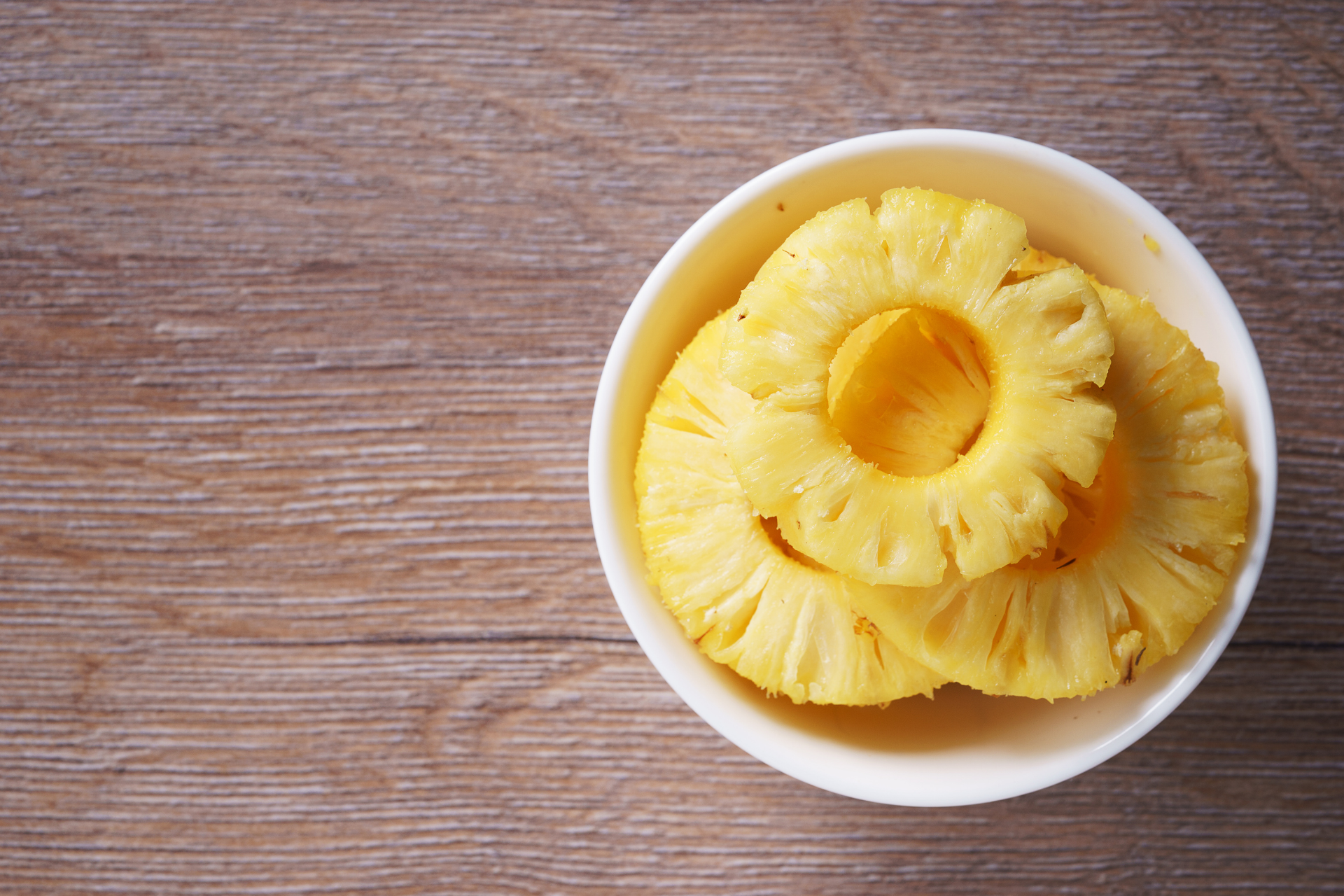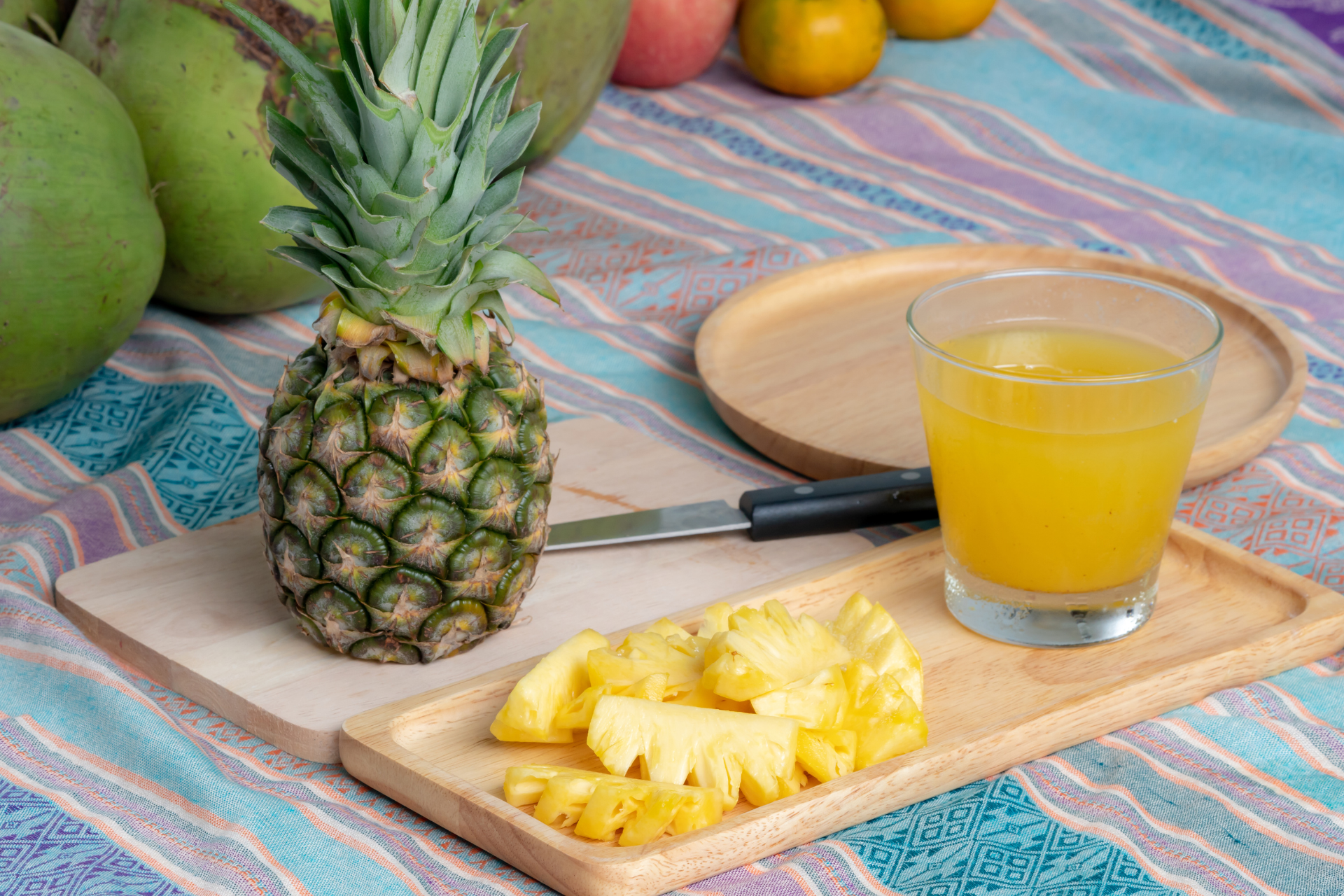When people talk about gut health, they usually jump to probiotics, kombucha, or some exotic fermented food. But one often-overlooked powerhouse in this conversation is pineapple. Yes, the tropical fruit we toss into smoothies or grill during summer BBQs has serious benefits for the gut. And I don’t mean in a vague, “it’s healthy” kind of way. I mean scientifically backed, bioactive compound-rich, digestion-supporting ways.
As a nutrition expert who’s spent years studying how different foods interact with the human microbiome, I can tell you this: pineapple deserves a bigger role in your diet if you’re serious about improving your digestive health.
In this post, I’ll break down exactly why that is, drawing from both research and clinical experience with patients who’ve seen transformative results simply by incorporating more pineapple into their routine.
Nutritional Content of Pineapple
One of the most powerful reasons pineapple supports gut health is its high content of bromelain. Bromelain is a group of digestive enzymes primarily found in the fruit’s stem and juice. These enzymes help break down proteins into smaller peptides and amino acids, making digestion more efficient.
Especially for people who struggle with protein-heavy meals, bromelain can provide critical support to ease digestive discomfort, bloating, or that heavy feeling after eating.
But it goes further than digestion. Bromelain also has anti-inflammatory properties. Chronic gut inflammation is a major contributor to a host of problems, including leaky gut syndrome, irritable bowel syndrome (IBS), and even autoimmune flare-ups. I’ve worked with clients dealing with these exact issues, and the addition of bromelain-rich pineapple to their diet helped reduce their symptoms substantially.
Most importantly, bromelain also appears to modulate the gut microbiota indirectly by reducing inflammation and improving the gut environment, which can help beneficial bacteria thrive. That balance between good and bad bacteria is critical.
A disrupted microbiome can lead to more than just digestive trouble, it can affect your energy, mood, skin, and immune system. Pineapple, in this case, acts as a natural co-therapist.
Fiber Content That Keeps Things Moving
While bromelain gets most of the spotlight, the fiber content in pineapple is just as important. Pineapple contains both soluble and insoluble fiber, both of which are essential for optimal gut health. Soluble fiber absorbs water and forms a gel-like substance, which slows digestion and helps regulate blood sugar levels. Insoluble fiber adds bulk to stool and supports regular bowel movements.
For people struggling with irregularity, constipation, or feeling sluggish, pineapple can be a natural, delicious solution. I’ve seen firsthand how increasing dietary fiber through whole foods like pineapple can outperform supplements in many cases. That’s because the fiber in pineapple comes packaged with water, enzymes, and micronutrients that work synergistically to promote gut health.
It’s also worth noting that adequate fiber intake feeds beneficial bacteria in the gut. These bacteria ferment fiber and produce short-chain fatty acids (SCFAs), which strengthen the gut lining, reduce inflammation, and support immune function. In simpler terms, the fiber in pineapple doesn’t just help move things along, it actually feeds the system that protects and restores your gut.
Nutritional Benefits of Pineapple for Gut Health
1. Hydration and Electrolyte Balance
Gut health isn’t just about what you eat, it’s also about your hydration status. Dehydration can slow digestion, lead to constipation, and disrupt the delicate environment within the gastrointestinal tract. Pineapple is nearly 86% water, making it an excellent food to boost hydration in a tasty and natural way.
Additionally, pineapple contains potassium, a key electrolyte that helps regulate fluid balance and muscle function, including the smooth muscles in your digestive tract. When these muscles function properly, food moves more efficiently through the system, reducing bloating and discomfort.
This is especially relevant for people who are physically active, prone to dehydration, or live in hot climates. I often recommend pineapple as part of post-workout snacks or rehydration strategies for clients who struggle with digestive sluggishness tied to dehydration. It’s a smart and refreshing choice that serves a deeper physiological purpose.
2. Natural Anti-Inflammatory Effects
Inflammation is one of the root causes of many chronic digestive conditions. Whether it’s IBS, Crohn’s, ulcerative colitis, or general gastritis, inflammation worsens symptoms and damages the gut lining. Pineapple’s bromelain doesn’t just help digest protein; it actively reduces pro-inflammatory markers.
Research shows bromelain interferes with the production of cytokines, chemical messengers involved in systemic inflammation. When we quiet that inflammatory response, we reduce tissue damage and promote healing within the gut. This is not just theoretical; I’ve worked with clients with long-standing gut inflammation who noticed real relief when they began eating pineapple regularly.
Of course, pineapple isn’t a cure-all. But as part of a well-rounded anti-inflammatory diet, it holds more therapeutic value than most people realize. I often pair it with other anti-inflammatory foods like turmeric, leafy greens, and fatty fish to help build a daily routine that fights inflammation on multiple fronts.
3. Supporting the Gut-Brain Connection
If you’re focused on gut health, you should also be thinking about brain health. The two are directly connected via the gut-brain axis, a communication network linking your gastrointestinal system with your central nervous system. When the gut is out of balance, it can lead to increased anxiety, mood swings, and even depression.
This is where pineapple’s mood-boosting potential comes in. It contains vitamin C and B vitamins, which support the production of neurotransmitters like serotonin and dopamine. A healthy gut fosters better neurotransmitter production, and pineapple helps on both ends: it supports the gut directly while providing the raw materials for a better mood.
From a clinical standpoint, I often recommend pineapple to clients dealing with stress-related digestive issues. Emotional stress can slow digestion, increase gut permeability, and contribute to dysbiosis. Pineapple offers both nutritional support and enzymatic action that help break that cycle. It’s one of the few foods I consider both gut-friendly and mood-friendly in equal measure.

How to Incorporate Pineapple Into Your Routine
A common question I get is, “How much pineapple should I eat?” While it varies by individual, a moderate serving of fresh pineapple (about 1 cup) a few times a week is a great start. Fresh or frozen is best, avoid canned pineapple in heavy syrup, which is loaded with added sugars that can undermine gut health.
Try blending pineapple into smoothies, tossing it into salads with avocado and greens, or even grilling it alongside protein-rich meals for a boost of bromelain. Just be mindful of portion size if you’re sensitive to acidity or dealing with active ulcers, as pineapple’s natural acids can irritate in those cases.
One of my favorite ways to use pineapple is in post-workout smoothies combined with a clean protein source and a little leafy green. It helps digestion, replenishes electrolytes, and satisfies a sweet craving without spiking blood sugar the way processed snacks do. Versatile, nutrient-dense, and easy to love, pineapple checks all the boxes.
Final Thoughts
Gut health is foundational to overall well-being. It affects everything from energy levels and immune function to mental clarity and skin health. Yet most people overlook simple, everyday foods that can make a profound difference. Pineapple is one of those foods. It’s not exotic, not hard to find, and not expensive. But it is powerful.
As a nutrition expert, I’ve watched countless clients turn a corner simply by adding this fruit to their diets. Whether it’s the bromelain easing protein digestion, the fiber feeding good bacteria, or the hydration keeping things moving, pineapple delivers. If you’re looking for one simple change to support your gut, this is it.
Don’t underestimate the basics. Pineapple isn’t trendy or gimmicky. It’s real food with real science behind it. Give it a place in your weekly routine, and your gut will thank you.
FAQs
Fresh or frozen is ideal. Canned pineapple often contains added sugars and fewer active enzymes due to processing. If canned is your only option, choose varieties packed in 100% juice with no added sugar. While it’s not a direct replacement for targeted enzyme supplements, pineapple provides a natural source of bromelain that supports digestion. It's a great food-based option, especially for mild to moderate issues. Yes. By aiding protein digestion and reducing inflammation, pineapple can ease bloating and reduce gas in many cases. Pair it with fiber-rich meals for even better results. People on blood thinners or those with bleeding disorders should consult a doctor before consuming large amounts of pineapple, as bromelain can have a mild blood-thinning effect. Is pineapple better eaten fresh, frozen, or canned for gut health?
How does pineapple compare to other digestive enzymes or supplements?
Can pineapple help with bloating and gas?
Are there any contraindications for eating pineapple regularly?




